Work, eat, sleep, repeat.
Sound familiar?
As business owners and team leaders, our work can often take center stage in our lives — meaning our personal needs get shoved to the bottom of our priority list.
Unfortunately, an unbalanced work-life balance can have more severe consequences than we think. Not only can our health deteriorate, but our relationships too.
Luckily, there are multiple things you can do to improve your work-life balance and ensure that you live a happy life — both at work and at home.
This article will discuss what work-life balance is, why it’s important, and give you top tips you can implement to create a better work-life balance today.
What does work-life balance even mean?
Work-life balance is the time you spend in your career versus the time you spend on other or non-work activities.
In an ideal world, you would work from 9–5, and once you arrive home, your remaining time will go to your family and yourself. You would spend this time doing activities with your family and engaging in a hobby.
While the idea of a work-life balance is easy to understand, achieving it is another story. Maintaining a healthy balance has become more difficult in today's fast-paced world.
It’s often expected of employees to work additional hours. Then, when they’re home, they can’t stop thinking about the work that must be done.
In 2020, the U.S. was listed among the top 15 countries with the worst work-life balance.
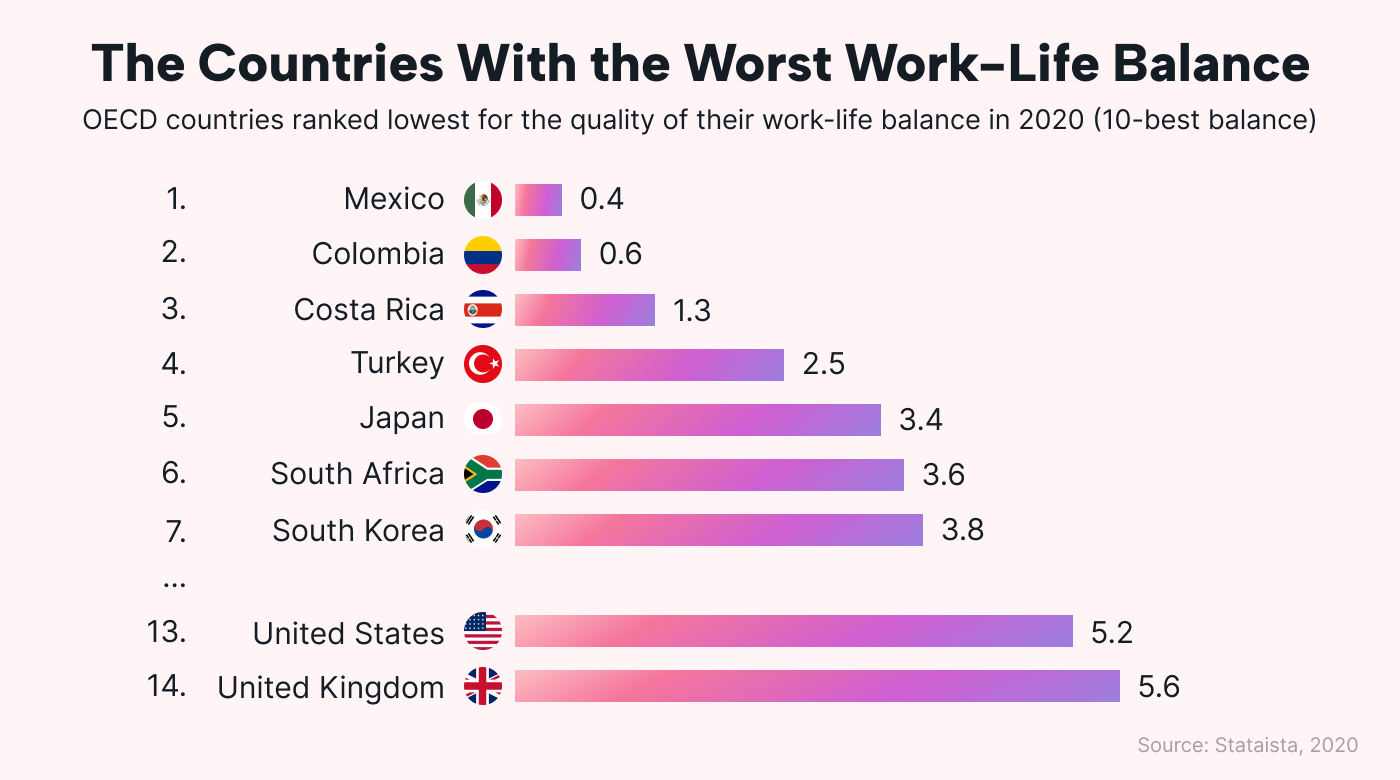 |
This data means the line between work and home has become increasingly blurred in America and several other countries.
What causes poor work-life balance?
Some of the primary causes of poor work-life balance include the following.
- More work responsibilities
- Working beyond standard business hours
- Expected to be available on demand
- Long commutes
- Having children
- A long list of responsibilities at home
- Starting a business
Why is a work-life balance crucial?
Having a good work-life balance holds many benefits. These include, but aren't limited to:
Fewer health problems
Based on an analysis of 2,000 Americans, 60% say the responsibilities and pressures of work and home life can often become overwhelming. This leads to high levels of stress.
Long-term stress can have severe consequences, including mental health problems, cardiovascular disease, and eating disorders.
In addition, overworked professionals can experience symptoms such as insomnia — which only leads to more stress.
A healthy work-life balance removes a lot of stress and can help individuals feel content in their work and personal lives.
Lower risk of burnout
In 2021, only 60% of employees stated they could effectively balance their work and personal life commitments. This means the other 40% cannot do the same — making them far more likely to reach a point of complete burnout.
Burnout occurs when individuals feel overwhelmed and cannot meet their increasing demands. This can negatively impact every aspect of their lives.
Thus, having a good work-life balance decreases the risk of burnout and, in effect, helps employees keep up with their responsibilities — both at home and work.
Better relationships
When employees are overworked and have little time to spend with their loved ones, this could cause friction and severely impact their relationships.
Their family members could feel neglected, resulting in fights and feelings of anger, frustration, and sadness in their homes.
Furthermore, their work relationships could also be affected since severe stress levels can lead to poor judgment and pessimistic behavior.
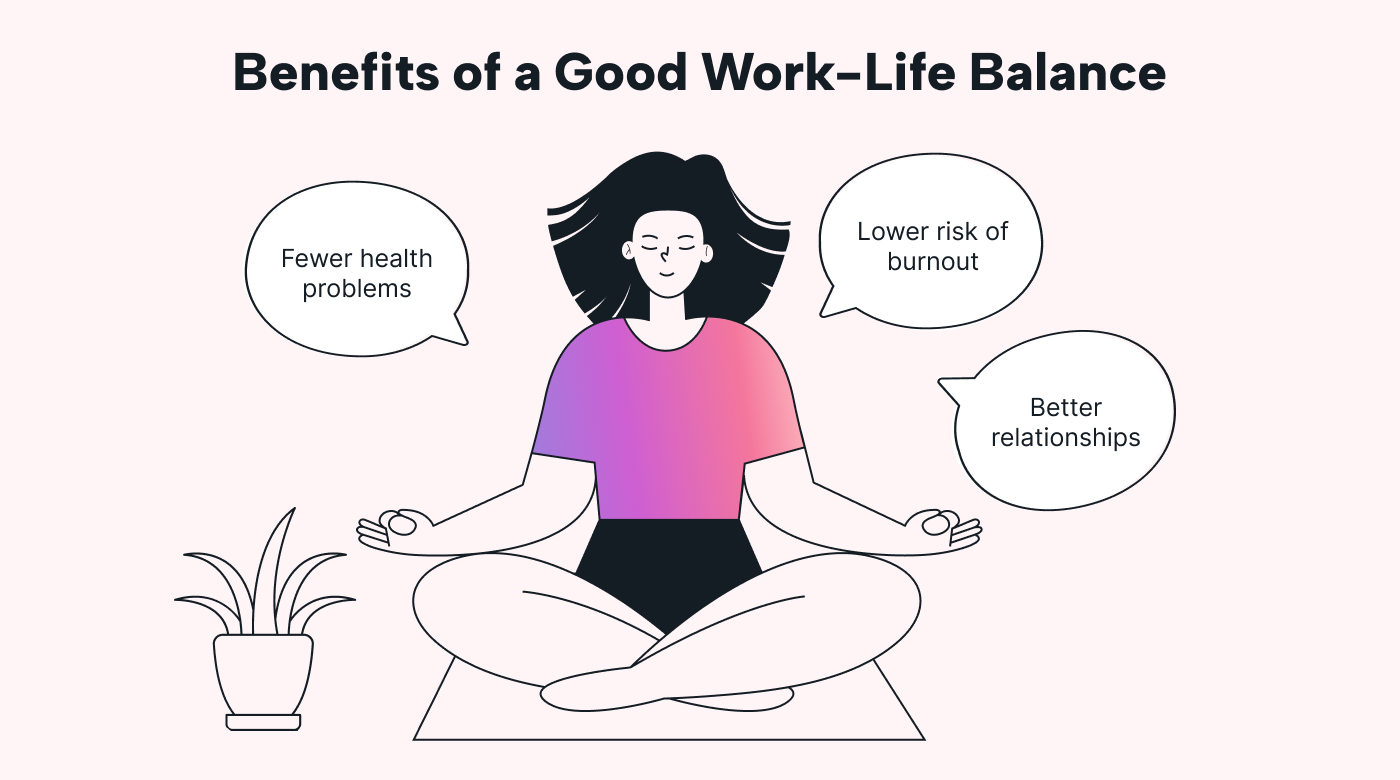 |
A good balance between home and work responsibilities means they’ll have better judgment, make better decisions, and have a more positive outlook. As a result, the quality of their relationships will improve.
Top signs that you have an unbalanced work-life dynamic
Here are some signs that your work-life dynamic is unbalanced, and you need to fix it.
- You can't stop thinking about the work you must do even when you're home.
- You have a hard time taking off when you’re sick.
- Everything aside from your work seems unimportant or boring.
- You feel like you don’t have enough time to spend with your family and friends.
- Your household responsibilities, such as dishes and laundry, are piling up until you “have the time” to get to them.
- You once loved your job but can no longer imagine doing it for the rest of your life.
- You can’t manage to put your laptop away even when you’re on vacation.
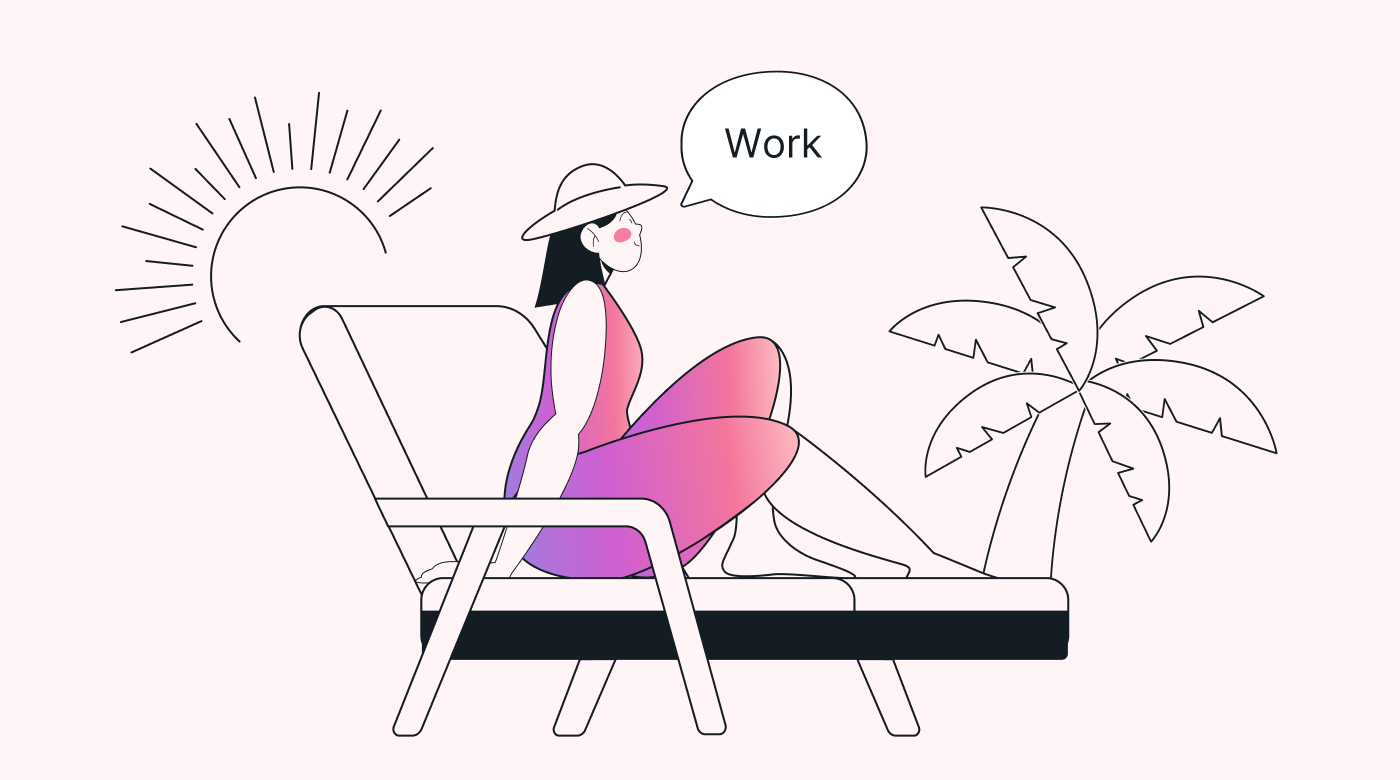 |
- Your personal relationships are suffering.
- You don’t have time for self-care.
- You’re struggling to focus because you constantly feel drained and tired.
How to improve your work-life balance
There are multiple steps you can take to improve your work-life balance. Here’s a list of some of the top things you can implement into your life to create a better work-life dynamic so you can see more success in your life and business.
1. Know that there’s no such thing as a perfect work-life balance
When people refer to work-life balance, they often think of it as the perfect situation where you have an extremely productive day at work and spend the rest of your day with your loved ones, laughing and having a good time.
But, the reality is that there is no such thing as the “perfect” work-life balance. Its rules aren’t set in stone. What works perfectly for one person may not work as well for another. Your ideal work-life balance will be based on your unique goals and priorities.
Furthermore, while we may strive for a life where we work during the day and spend all the other time with our families, this isn’t always possible.
Our schedules won’t always look the same. Some days, we might spend more time working. While on other days, we may spend more time with our friends and family.
Pursuing a realistic schedule is better than a perfect one.
2. Set blocks of time for certain tasks
Automation tools can be real time savers.
This is especially true when it comes to your schedule. Balancing your personal and professional life can be tricky when you don’t manage your time effectively. You need to prioritize your tasks — including those of your work and personal life.
Using a tool such as Motion will allow you to sync your personal and professional calendars to focus on home and work responsibilities in a single space.
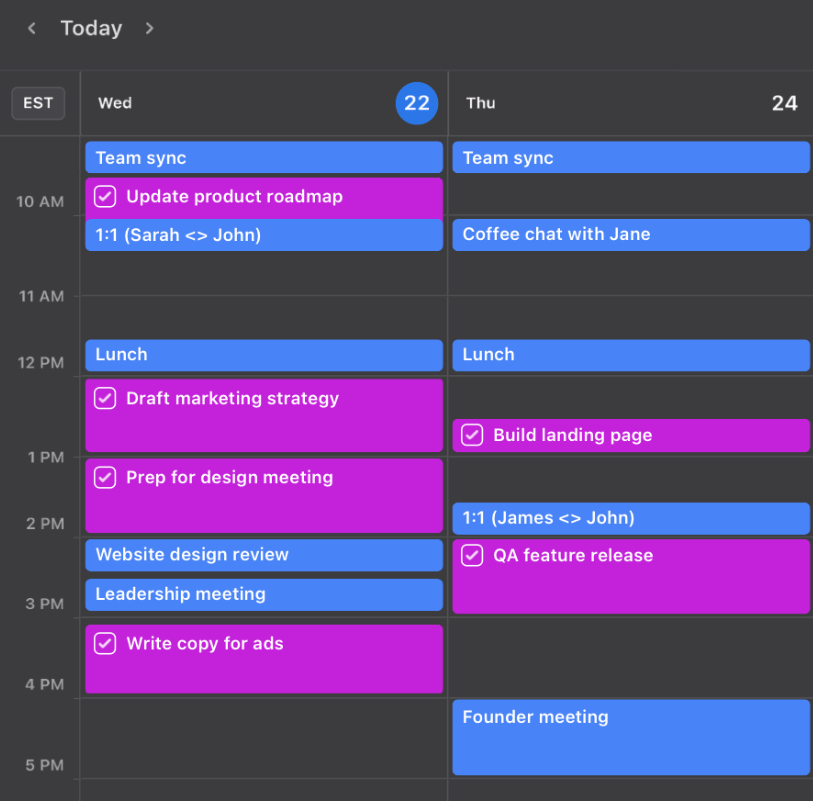 |
Motion has time-blocking capabilities, so you can set time aside for everything you need to do.
Its visual presentation makes it easy to see when each task should be completed — keeping you accountable with clearly set deadlines. It also allows flexibility since you can move tasks around if unplanned events happen.
3. End work at a specific time
It’s easy to put in extra work hours without even realizing it. This is especially true if you work from home.
While working extra time every once in a while isn’t going to have a severe impact on your work-life balance, it can become a problem when it occurs daily.
Thus, setting clear boundaries and working hours is essential.
You can do this by setting a time to end work for the day and enforcing it by shutting down all work-related devices and activities. For example, you can turn off your laptop (and not turn it on again until the next day), lock your office, or even schedule dinner with your family.
4. Pay attention to the way your brain works
Figuring out how your brain works will help you become more productive.
For example, if you concentrate better when music is playing in the background, put on a set of headphones. Similarly, if you know you can get more work done in the mornings when your head is clearer, ensure you complete your most difficult tasks during that time.
Being more productive means you’ll be able to get work done faster and more efficiently. As a result, you’ll be able to spend less time working and more time doing the things you love — without stressing over work, you couldn’t complete.
5. Create a designated workspace
Having a designated work space is crucial to getting work done. This is especially true if you work from home. Not only will a workspace allow you to have more focus, but it’ll also serve as a clear distinction between your work and home life.
On a subconscious level, your mind will understand that it needs to be in “work mode” when you’re in the office and “relaxation mode” when you’re not.
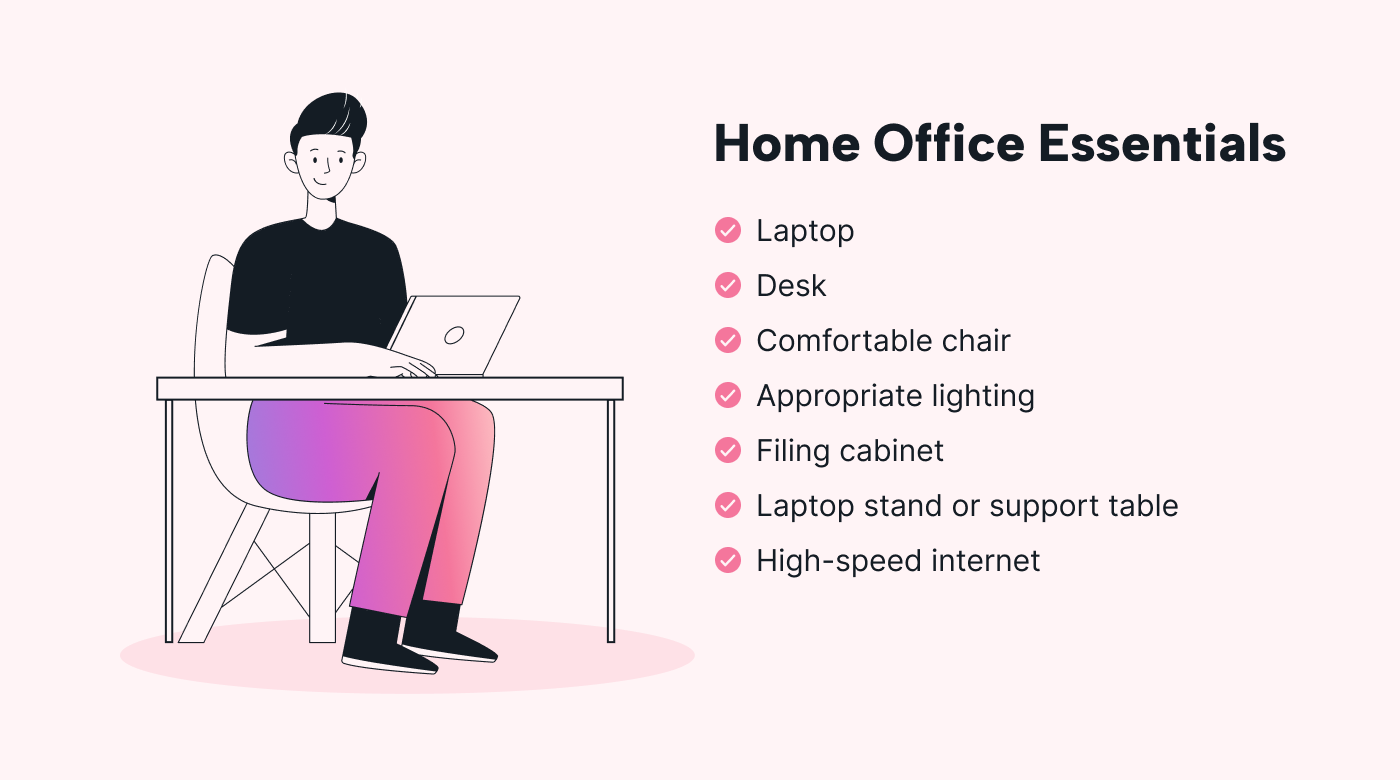 |
It’s best to locate an appropriate spot at home to set up your office. You can include all the essentials, such as a comfortable chair, desk, internet, and more.
6. Prioritize your health
You need to make your mental and physical health your biggest priority. After all, without being healthy, you won’t be able to give adequate attention to your work or family.
If you’re someone who struggles with depression or mental health conditions and you think a therapist would help, make sure you schedule in time for these sessions.
You also need to ensure you get enough exercise and sleep so your body can function properly. Don’t be afraid to call in sick if you feel under the weather. Working will only prevent you from getting better.
Looking after yourself first will make you a better partner, parent, and employee.
7. Combine work and personal activities
When working remotely, there are certain times when you can combine work and personal activities.
For example, if you find yourself sitting through back-to-back meetings, why not take the meetings while going for a walk? In doing so, you can work on your job tasks and health simultaneously.
While this won’t always be possible, you can maximize your hours by thinking of innovative ways to manage your work and personal time.
8. Set time aside to ‘unwind’
Cutting ties with the outside world every once in a while can do wonders for your mental health. It allows you time to recover from stress and gives you space to think about how you feel.
You can find something you enjoy outside of work – a hobby such as painting, golfing, writing, swimming, or even pottery.
It’s also important to take a step back from technology.
While technology and electronics are great and play a massive role in our lives, it’s a good idea to avoid them sometimes since it allows you to unwind completely. This way, you won’t be bombarded with constant distractions and communications from the outside world.
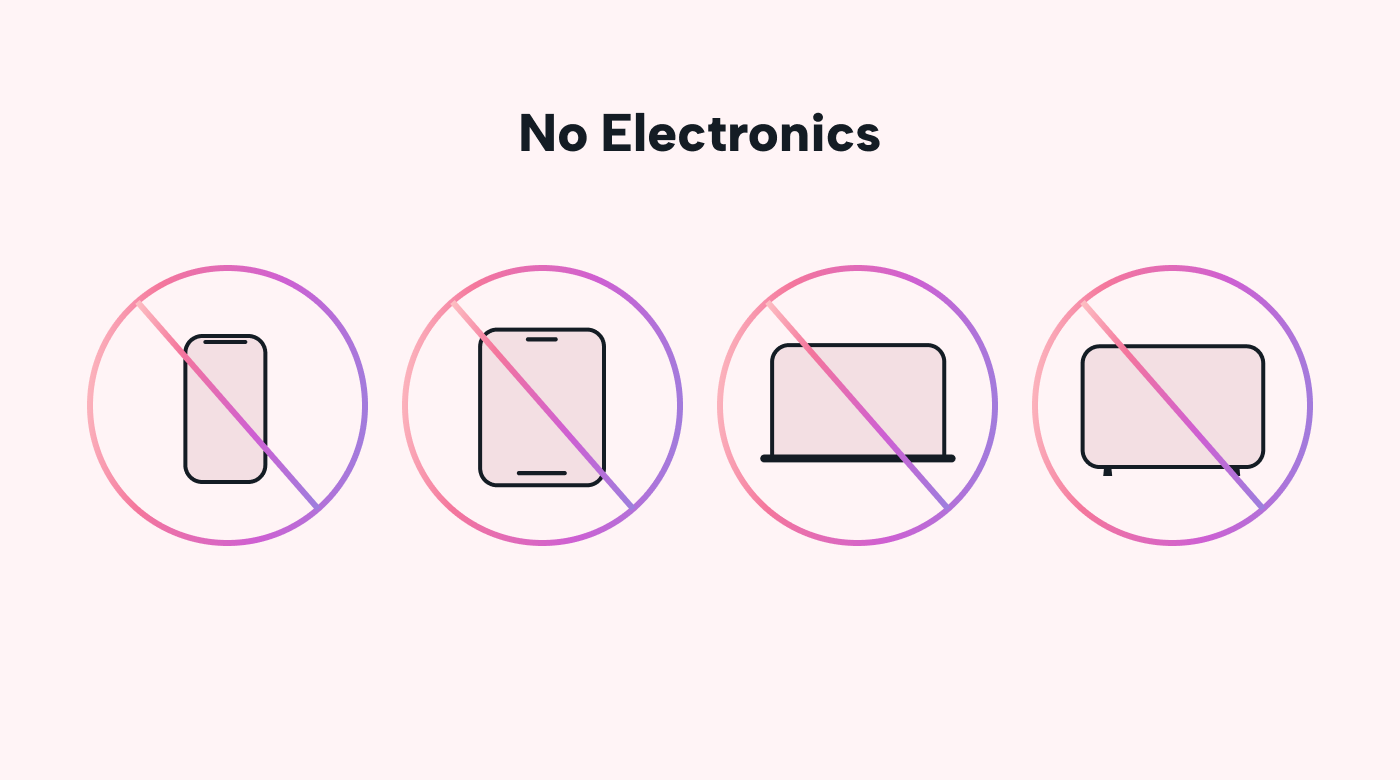 |
Again, you can even slot your personal time into your Motion calendar!
9. Make time for your loved ones
While your job is important, your entire life shouldn't revolve around it. Before you started working at the company, whether it be your own company or someone else’s, you were an individual with family and friends.
Thus, you should also prioritize time for activities and people that make you happy.
To achieve true work-life balance, you need to take deliberate action. Make sure you deliberately plan for personal time.
Be sure to schedule dinners, holidays, and events with your family, even if it’s just a cozy movie night. It may seem strange to slot these activities into your schedule, but it’ll ensure you spend quality time with them without thinking about work or other obligations.
10. Take vacations
Resting is important.
Sometimes our work takes center stage in our lives to such an extent that we forget to take a break. Whether it’s a short 2–day vacation or a 2–week trip to Paris, taking time off is important so you can completely recharge — mentally, physically, and emotionally.
While you may be worried that taking time off will impact your workflow and that you’ll have a lot of work to catch up on, this shouldn’t stop you from taking a vacation.
The benefits of taking a break far outweigh the downfalls.
What employers should do to improve work-life balance
For your employees to truly be happy working at your company, you must help them improve their work-life balance.
Don’t schedule meetings before or after work
Employees tend to feel obligated to join and end up working more hours than they should — especially if these meetings happen a lot. In 2022, 20% of U.S. employees left their jobs because of working too many hours.
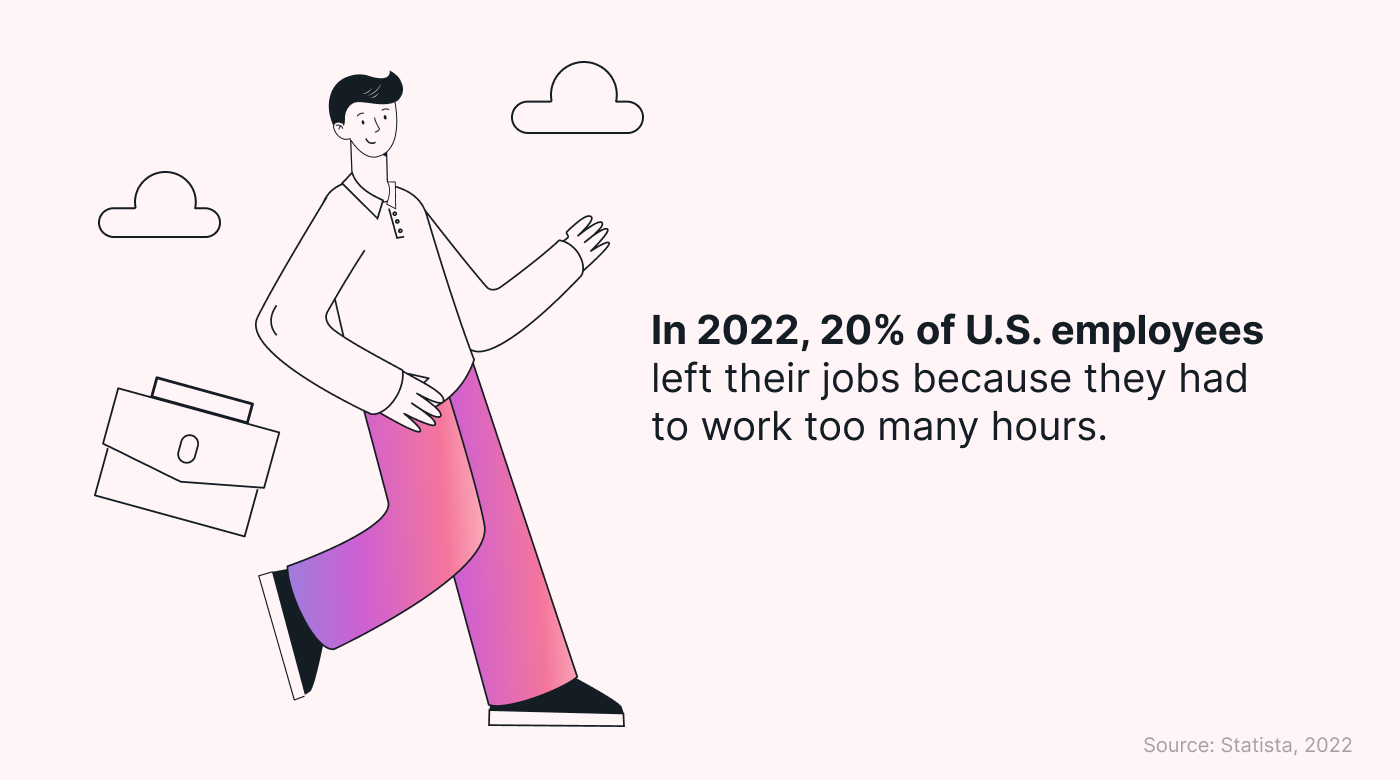 |
If you often run out of time on projects and are forced to schedule urgent meetings, it’s probably due to ineffective project and time management.
Learn how to successfully manage a work project so you and your team can get the work done faster — and within their actual working hours.
Show your staff members that you care about their well-being
Make sure you check in with your employees from time to time to see how they’re doing. Don’t only ask about their work, but their well-being in general.
You may sometimes need to read between the lines since they may not want to share their difficulties with you. But, if you see that they’re missing important deadlines and are often late getting to work, this could indicate that they’re overwhelmed.
Encourage employees to leave their laptops at home when going on vacation
In the same way you need to “unplug” during vacation time and avoid electronics as much as possible, your employees need to do the same.
Encourage staff members to leave their electronic devices, such as their laptops, at home and to stop responding to messages on their phones.
You should avoid normalizing an “instant messaging” culture and make it clear that messages sent after hours (or when employees are on vacation) don’t need immediate attention.
Remind team members to use paid time off
Speaking of vacations, you need to remind your employees of their sick leave and paid time off. As mentioned above, work can often take center stage in our lives to the point where we forget to take the necessary breaks.
By reminding them of their PTO as part of their compensation, they’ll be much more likely to take time off and re-energize. This means they’ll be more productive and maintain a positive attitude when they return from a holiday.
Achieve your ideal work-life balance
Now that you know what work-life balance is and how to improve yours, you can follow the tips mentioned in this article. Start using Motion to create a schedule that keeps you on track.
Pay attention to how your brain works so you can become more productive and get more work done in less time. And finally, make time for your family and yourself.





